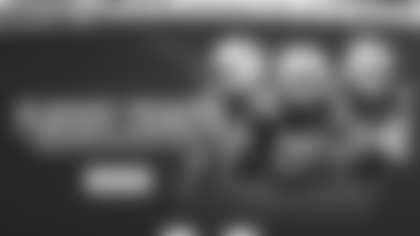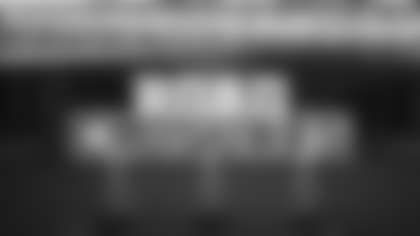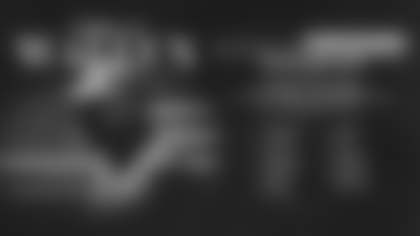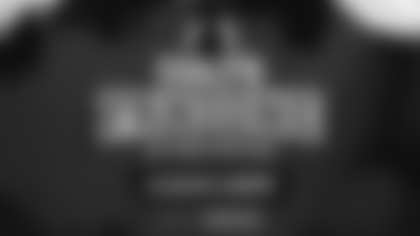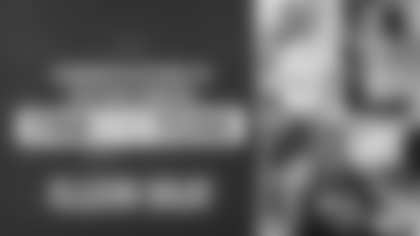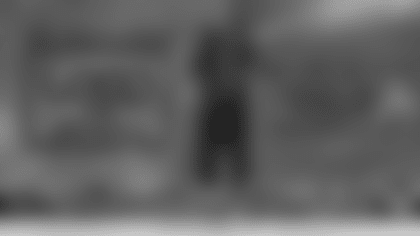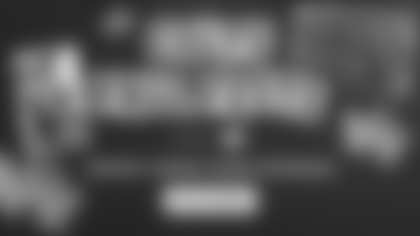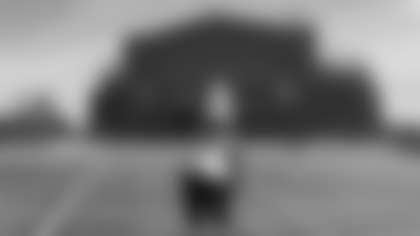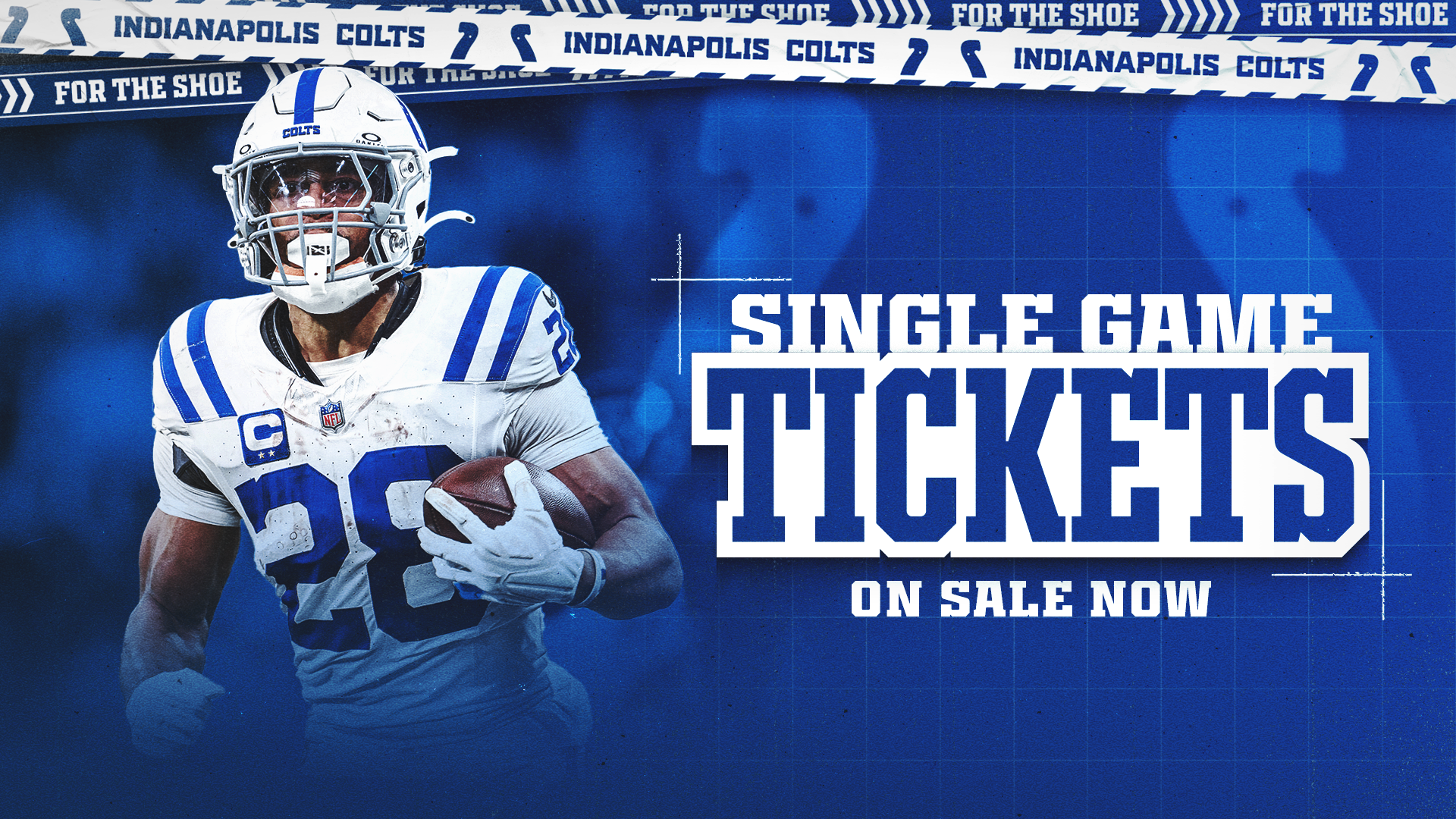**
**
*
Q: A 17-15 victory over the Baltimore Ravens Sunday. Yet another heart-stopping victory . . . they're getting to be routine.*
**
A: This is the National Football League. That's the way
it's supposed to be. We played a very, very tough, physical game
against a very, very tough, physical team. While I pay very little
attention to what's written or said about us, one thing I was a
little bit gratified about [Monday] morning was I didn't hear
anything about us being a finesse team. They [the Ravens] came out
there and decided they were going to slug it out for 60 minutes. We
slugged it out for 60 minutes and won. That's a great feeling. It
really is. Great credit goes to our defense for just playing their
hearts out from start to finish. We had a chance to open the game
up and get them out of that ball-control style had the fumble on
the kickoff held up, but it didn't. That's too bad. But that put us
in a situation where they were able to play the way they wanted to
play, which was to run the ball and use a possession passing game.
We were more than ready for the task. We handled it very well. The
goal-line stand was outstanding. The interception was outstanding.
We put pretty good pressure on the few occasions when [Ravens
quarterback Joe] Flacco did go back to throw. We forced them to
dump the ball underneath. It was a particularly good game by our
defensive tackles. All of them really played very, very well. They
really controlled the line of scrimmage. We did not get moved off
the line of scrimmage and as a result, our linebackers had a great
day. They were knocking people backward. [Ravens running back] Ray
Rice is a great runner. The fullback [Le'Ron McClain] is like a
freight train running downhill, and we stopped them in their
tracks. [I'm] very, very proud of the effort the defense
made. The secondary did a great job covering. It was too bad
[safety] Melvin [Bullitt] didn't pull off the interception, but it
was a great play nonetheless. [It was] a courageous performance, a
great performance. It was a day when offensive miscues cost us
probably 14 points. We were in a position where we had to fight all
the way to the end, and we did it. I'm really proud of our guys.
These last two weeks, they've expended a lot of effort. You could
expect in many ways a little bit of a letdown coming off that
Sunday night ballgame [against New England], but they didn't have a
letdown at all. They played their hearts out on both sides of the
ball. The offense wasn't clean, but we got enough to get the job
done. The kicking game was good, and the defense was outstanding.
Q: Tight end Tom Santi had his first extensive action in some time, and despite a second-half fumble, he had in many aspects an outstanding game . . .
A: The fumble is a sad thing because otherwise, he had a great game. He had some courageous catches. He had some huge catches. He made some really good blocks and played awfully well, but the fumble, especially down there, there's no way you get around it. That's at least three points and probably seven that are taken off the board. You can't do that. In his defense, this is the first time he has played football since August, so for those who think that you can play only two preseason games and get ready and be in peak condition, let me remind people in the real world that doesn't happen. He'll get through that. But it was not a very smart play. He was trying to get the ball over the goal line and [Ravens middle linebacker] Ray [Lewis] came along and gave him a shot in the head and knocked the ball out.
Q: And Lewis is still an effective player.
A: He's still a good player. He plays in fits and starts. He's not there all the time like he was, but he's still capable of big plays, and he's an inspirational leader for them. He'll make a big play every now and then, and the fumble was an example of one. He's one of those players – in baseball, they talk about players hitting mistakes. If you make a mistake, I guarantee you Ray Lewis is going to take advantage of it. That was a mistake of which he took advantage.
Q: He also had a huge hit on Colts second-year wide receiver Pierre Garcon . . .
A: Pierre made a great catch there and Ray had him zeroed in and put a good shot on him. Pierre's a tough guy. He doesn't back down from anybody. He jumped up and was woofing along with Ray, which was good to see. That was a big catch and kept the chains moving.
Q: Is there a significant difference in how running back Joseph Addai is playing this season?
A: There's a difference. Sure, there is. Particularly when he gets his pads down and he's going north and south. Joseph is running as well as he ever has run in some holes that are not very big. If you go back to the period of time when we couldn't stop the run and the infamous Jacksonville game [in December 2006], a lot was made and a lot of derision was thrown toward both [former Colts Head Coach] Tony [Dungy] and I. We were saying it was fixable because it's really a gap responsibility issue. Of course, we went on to win the Super Bowl, so we were right. The bottom line is what was happening then was that as people were entering into the hole, they were being moved, blocked – not just occupied, but moved – so the holes were opening up very, very wide. When a linebacker has to take on a running back in a two-foot area, the advantage is to the linebacker. When he has to take on a running back in a six-foot area, the advantage is to the running back. Joseph has been running in a lot of two-foot areas. He has done a heck of a job banging in there, finishing runs. He really has done a remarkable job. He's averaging 3.5 yards per carry, which is not great, but his runs have been significant. They've resulted in touchdowns. He's running hard. He's moving the chains. If we did not have the unfortunate false start penalty, which was Tom Santi as well, we probably never have to kick the ball. We would have gotten the first down. You can't convert 1st-and-15 without throwing it. We weren't about to throw it in that situation. As it turned out, we made a great play to recover the aborted lateral. The bottom line is Joseph has been running great, as has [rookie running back] Donald Brown. Donald needs to get a few more carries as time goes by.
Q: Addai has been criticized at times, but he has played well this season . . .
A: People say, 'Well, Joseph has slowed down,' or, 'Joseph isn't what he used to be.' Try picking up five blitzes a game on Ray Lewis and see how much you have left in your legs. It's very difficult to do, and that's a critical part of our offense. We block with the running back a lot of times. That's what allows [Colts quarterback] Peyton [Manning] to hit those big plays to the wide receivers and tight ends. Joseph does a magnificent job of it. The statistics aren't there, but he's having a terrific year.
Q: Addai seems to have a hop at the line of scrimmage on many plays. Why is that?
A: First of all, it depends upon the play that's being run. We have a series of plays that are called zone plays where we zone block where he has to hop. He's taught that. It's called a jump cut. He has to wait and be patient and wait for the hole to open up. At the professional level, especially with our offensive line, you don't just come off the ball and blast people back like you might do at the high school and college level. He's waiting for the hole to open up. There are other plays where we run him north-south – and on the draw, too, many times when it opens right up – where has to go, go, go. There's absolutely no issue of the jump cut, but most of the time when we're running a zone play, the hop that you see is absolutely part of the play because he has to give the puller a chance to come through or he's trying to read the double-team or things of that nature. The running game in pro ball is far more sophisticated than it is at the high school or college level. That's part of the drill.
Q: On the touchdown run, he put a hop move on Lewis . . . .
A: That's correct. He gave him a good juke and walked in clean.
Q: Was the stretch play more in the offense Sunday? How is it determined how often the play is used?
A: It depends upon who you're playing and how they play you. It depends upon the front you're playing against. Baltimore's front was essentially a 30 front and occasionally they would give you a four-down look with nickel – five defensive backs. We would term it a 3-3-5. It's not exactly that, but the bottom line is, the play selection depends upon the front we're facing. We ran to the outside a good bit Sunday with the outside zone play.
Q: Is there something that can be done to not have to play catch-up so much in the second half?
A: There's really not anything you can do. Mike Murphy, our linebackers coach, is fond of saying, 'The guys on the other side of the line of scrimmage get paid, too.' In the National Football League, they're always very good. If things break right for you – I'm always reminded of former [player/broadcaster] Don Meredith's great saying, 'If ifs and buts were candy and nuts, we'd all have a Merry Christmas' – but we'll play the 'if and but' game, which I rarely do. If we get the fumble on the kickoff [Sunday] after we got a big-strike touchdown, and we turn around and get another touchdown to make it 14-0, they're probably out of the ball-control game they wanted to play. But that didn't happen. We got a review. You can determine whether you thought it was a good or bad review, but the bottom line is that they didn't give us the ball. The whole momentum of the game switched. The whole tenor of the game switched. Many times you have to fight from behind. As I said, we had a lot of unforced errors Sunday – a lot of plays we should have made, but we didn't. That's going to happen. Everyone's injured at this point in time. New players are playing. Players are playing different positions. Players are playing hurt. That is why at this point in time in the National Football League you get lots of upsets. The Raiders Sunday beat the Cincinnati Bengals. No one can predict that. No one can predict the health of clubs. No one can predict the Raiders were going to change quarterbacks. The National Football League is awfully, awfully tough to win one game, much less 10. The fact that we've fallen behind is just business as usual. We're not good enough – and no team is good enough, really, to run away with things. It just doesn't happen that way.
Q: Fans may have been spoiled early, with four consecutive double-digit victories . . .
A: You'll have those games. And then you're going to have the games like New England, and you're going to have games like this one. The close games are much more the norm than the opposite. If you happen to have a weak schedule, maybe you catch a break, so it can get out of hand. Or if you have a team that's terribly beaten up – like the Titans were early in the season when they had no secondary, you might catch them and have a big score, but the vast majority of the time games are exactly like they were Sunday. That's why we preach attention to detail: don't leave the ball out there where someone can knock it out on the one-yard line. Don't have a procedure penalty in four minutes when you want control the ball and end the game. I'm picking on Tom Santi here and I don't mean to, because as I said, this is the first time he has played football in four months, but these games are the norm. They are what they are and every week is a battle in the National Football League. The idea that we could be 10-0 is so far from the norm that you can't even conjure it up in your own mind. If you dreamed up the most compelling and the greatest scenario you could, would you ever dream of being 10-0? Absolutely not, not under any conditions.
Q: The Colts on Sunday became the first team in NFL history to win four consecutive games after trailing in the fourth quarter.
A: We're a good team. We can come back in the fourth quarter. We're used to doing it. We've done it before. This is a team that has sort of, 'Been there, done that.' We're not going to have any difficulty performing, but the idea that you think you can win 10 straight and somehow or other, that's to be expected – not the case.
Q: Is quarterback Peyton Manning healthy?
A: He's healthy. First of all, the NFL injury policy is stricter than the Kyoto Protocol. They require everything to be reported every five minutes. If Peyton were injured, we'd be under Congressional investigation if we hadn't reported it. That's No. 1. No. 2, statistically, his percentage of interceptions is probably down from what it has been. We've thrown the ball a heck of a lot. Sunday was probably the toughest day he's had all year and when you use the word, 'Tough,' every once in a while, Galileo had a tough day, too, I think. Leonardo da Vinci may have a tough day. It's in that context. He himself said he got a little bit itchy and made two throws that probably he would like to have back. Part of that is [Ravens safety] Ed Reed. Ed Reed has the darndest habit of showing up where you don't expect him to show up, where the coverage tells you he won't show up. Where you can reasonably expect that he won't be, he shows up and intercepts the ball. Those kinds of things can happen from time to time. The throw to [tight end] Dallas [Clark] was probably an ill-advised throw. He was bracketed and normally, Peyton doesn't put the ball there. The other one was all Ed Reed. That was a great throw. We pumped a guy on the outside. [Wide receiver] Reggie [Wayne] had beaten him. Ed Reed smelled it out and made the play. God bless him. That's why he's a Pro Bowler. It wasn't new and as Peyton said after the ballgame, 'You probably have to factor that in that he's going to show up where you don't expect him to show up.' He'll show up at the point that he believes you're going with the football, not necessarily where the defense on the chalkboard or the tape should expect him to be. That's the mark of a great player. Bottom line: the drive that went all the way down the field that ended in the fumble was as good a drive as we've had all year. He had by Peyton Manning standards an average game. By anybody else's standards, it was a heck of a game, and we ended up winning the football game. The two interceptions are two more than he wants to have in a given day, but against that defense, that's more than good enough. Don't anyone lose sight of that.
Q: Why was Baltimore allowed to pick up the challenge flag just before the two-minute warning in the first half?
A: They have only two alternatives once they throw the flag – actually two and a half. If the challenge is not within the rules – and there are certain plays that cannot be challenged – if they challenge erroneously, the referee is allowed to say, 'That is not challengeable, and we won't charge you with a timeout and we're moving on.' If they did it more than once in a ballgame, that would be subject to a penalty if in the official's opinion he thought they were trying to slow the game down. Absent that, once you threw the flag – and they threw it as to feet in bounds or out of bounds on Reggie Wayne, and it was clear they were in bounds – once they threw it they had two choices: go through with the challenge and lose it and, therefore, lose a timeout and the right to a third challenge; or, get a 15-yard penalty for unsportsmanlike conduct because you cannot slow the game down with an erroneous challenge. I've only seen that done once before, and interestingly enough the other time the coach was not penalized either. I remember distinctly in our Competition Committee meeting when we brought replay back asking the question, 'What happens if a coach throws the flag either entirely in error or because he wants to slow the game down and wants to give his defense a rest and wants to substitute people?' The answer was, 'He cannot do that. He can't pick the flag up and decide he doesn't want to challenge. He either must accept the challenge and the penalty that goes with it if he's wrong, or be penalized 15 yards for unsportsmanlike conduct.' Now, they might – they might – in what they consider a non-egregious situation – and this is not in the rulebook – they might penalize five yards for delay of game, maybe. But there has to be some penalty for erroneously throwing the flag and then saying, 'No, I don't want the challenge.' That was not the case Sunday, and it almost ended up being a disaster. If you remember, they got a third challenge because they got the first two right. The third challenge they used was on the fumble out of bounds where we actually recovered the ball. So, that could have changed the whole complexion of the game because they were allowed to pick that flag up. I spoke to the league office about it. They're well aware of the situation. But there's no possible way they should have been allowed to do that.
Q: What are the options for a case such as Ravens coach John Harbaugh faced at the end of the game, when he used two timeouts around an unsuccessful challenge of a Colts first down?
A: He can ask for a measurement, but they did that correctly. He called a timeout, then John Parry, the referee, said, 'I'm going to measure.' But he had taken the timeout. So, that was Timeout No. 2. Then, he challenged and lost. So, that was Timeout No. 3. They were out of times out at that point. They did do that correctly. I think they had some help from the booth in doing it, but they did it correctly. Frankly, I don't know why they couldn't get help from the booth in the erroneous flag situation and the erroneous challenge situation. I don't know why they couldn't get help in that situation.
Q: Is there any truth to the rumor that safety Bob Sanders could be released or traded at the end of his contract?
A: First of all, his contract is not up for another three years. There's no way we would cut Bob Sanders unless he's completely incapable of playing, and I don't think that that's the case. I think he'll be back better than ever as the saying goes next summer. I see no situation where we would cut him. Trade? There's an old saying, 'Don't ever trade anybody who can help you.' I think Bob Sanders can help us a lot (laughing), so it would have to be a blockbuster offer to even consider it. I don't see any chance that either thing could happen. I think Bob's back with us, as I say, better than ever and in a good frame of mind – whole and healthy and ready to go.
Q: Will teams increase their focus on tight end Dallas Clark now that he has become so prolific?
A: I believe so. You're going to see much more of the style of defense that New England played and Baltimore played Sunday, where they're in a situation where they try to double Dallas as much as they can and try to double Reggie as much as they can. That doesn't mean two players necessarily line up side by side on him, but they'll do an over and under. They'll do a side by side. They'll do it by taking away the routes they try to run. They'll do it by interfering with them down the field – the so-called illegal contact, trying to bump them off their routes – all of that kind of stuff. We're going to see that for the rest of the season because people recognize what a great receiver Dallas is. They recognize what a great receiver Reggie is and they're going to try to take them away, which is why Pierre got loose for the 66-yarder Sunday on the second series of the game. The answer is we're going to see those kinds of coverages.
Q: Does it mess with the Colts' psyche at all that some would consider New England the best team in the NFL if the Patriots beat New Orleans Monday?
A: No, it doesn't mess with your psyche at all. What we've told the players is, 'The people who write and speak, don't play.' The outcomes of the games rest only in the hands of the people who play and coach and work with the team. So, anything that's said or written is absolutely meaningless – to us. Now, it may be meaningful to fans, but it's not to us. In many ways, we live in parallel worlds. The media is in their world and what's important to them is important to them, and we're on our world and what's important to us is important to us, and the twain almost never meets. We pay no attention to that whatsoever. It means nothing. The great thing about the NFL is that everything is decided on the field. We don't have polls. We don't have voters. We don't have computers. We don't have any of that stuff that is associated with the college game, which in my mind is so artificial. The game ought to be decided on the field, not by who has the best publicity department or who has the best computer person. That's what happens in the NFL. In the NFL, it's difficult to win one game, much less 10 or 11 or 12, or however many it will take to win the division and get a good seed, if that's the case. Our focus every week is to play the best we can and not worry about what's happening the following week. Peaking is not an issue for us. We want to play our best football 16 weeks a year and if we're fortunate enough to get into the postseason, we're going to try to play our best football then and we'll do everything we can to aim at that, if and when we're lucky enough to get into the postseason. But you don't worry about peaking. You want to lay it on the line every week in the National Football League. Because I guarantee you if you don't, you will come away with a loss. There's absolutely no question about that. As I said, it's a parallel universe. The only way to win is to pay attention to nothing but the upcoming opponent, nothing else. Nothing else can affect that game. Nothing else but preparation for the next opponent can affect that game. That's why a loss in the playoffs is so devastating to all of us because for the first time in seven months there's no next opponent to practice for. There's no next opponent to prepare for. We focus week-to-week and week-to-week only. [Colts Head Coach] Jim Caldwell made this point [Monday] in our meeting. He said, 'Hey, I'm not worried about two weeks from now. I'm not worried about three weeks from now. I'm worried about this week and this week only,' and that's where our focus has to be.
Q: Can you comment on the situation of a general manager or coach having their job depending on a rookie quarterback?
A: I certainly wouldn't want to be an employee of a franchise that had my job hooked to a rookie quarterback. No rookie quarterback is capable of doing anything positive, much less saving a franchise. Every once in a while you'll have a guy like [Atlanta Falcons quarterback] Matt Ryan or Joe Flacco come into the league who has a great defense around him and who has a great running game around him and who has a coach who controls what he does, so you can do reasonably well. But no rookie quarterback achieves anything of note. Never has. Never will. It's absolutely impossible. The game is too tough. There's too much at stake. There's too much sophistication. There's too much to learn. There's too much to master. For a coach or a general manager to have their career linked to how well a rookie quarterback might do, that's ludicrous. Let me get back to the parallel universe issue: all of these kids coming out of college are hyped until the cows come home during the draft preparation by all of these so-called experts, the vast majority of whom have never, ever been in a draft room – never been in a draft room, they're entertainers – yet they make these outlandish statements about franchise players and guys you can build around for 10 years. Let me remind you that description was the one of Ryan Leaf and the description of Peyton Manning was, 'Product of a system who has reached his ceiling who can go no higher.' That's all you need to know about the assessment of rookies. [Former Baltimore Ravens Head Coach] Brian Billick in his wonderful book, 'More than a Game,' put it best when he talked about the draft. He said, 'Nobody knows anything.' That was the title of the chapter.
Q: Have the Colts ever given any thought to opening Lucas Oil Stadium to fans during road games?
A: It would be determined, No. 1, by what event is booked at the stadium. I have no way of knowing that as we speak. There are times when there are events that are booked through the weekends on days we are on the road. If we were not, and the stadium were available, it sounds like an interesting idea. I'll broach it to the folks here who deal with the stadium people and see if there's anything that's workable there. It may not be workable, but it's a heck of an interesting idea.
Q: The Houston Texans are next. Can they do anything different than they did when the teams played earlier this month?
A: Yes, they can. One thing they did not do that they have done repeatedly against us is the bootleg game. They didn't show any of that last time around, and I presume that was because [tight end] Owen Daniels was out. I would expect to see more bootleg game. We'll see.
Q: Texans quarterback Matt Schaub is a having a big-time year . . .
A: He's having a great year and he has a great receiver in Andre Johnson. Two good running backs, principally [Steve] Slaton, he's a home-run hitter and Ryan Moats, who is a very solid guy. [James] Casey is a very athletic tight end, along the lines of Dallas. They have a good receiving corps and home-run hitters in the running game. They're committed to a zone-action running game, which helps them bootleg the ball on play-action passes. Slaton can come out of the backfield and hit home runs catching the ball or running with it. Defensively, they have, after Dwight Freeney, arguably the best defensive end in football in Mario Williams. He's outstanding. He's a heck of a player. [Defensive tackle] Amobi Okoye is a great player. DeMeco Ryans, their middle linebacker is a great player. Dunta Robinson, their corner, is very good. They've been drafting high for 10 years, so they ought to have good players and they do. We are a big game for them. It seems like we're everybody's big game these days, certainly no question about that. It's a heated rivalry and a division game and a tough one, as we saw here in the game at Lucas Oil Stadium.




